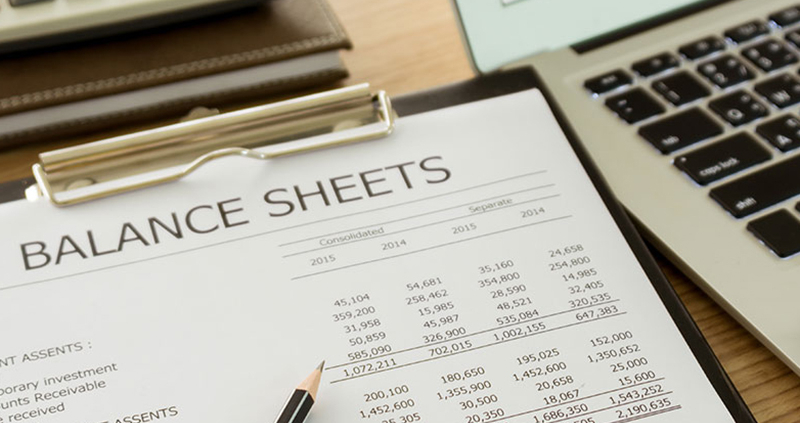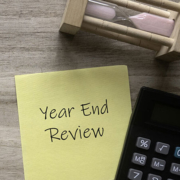Balancing Act: Reconcile All Your Accounts – Not Just Cash
Learn how you can maintain an accurate monthly balance sheet by reconciling all your accounts — not just cash. Learn more with these bookkeeping tips.
How accurate is your balance sheet? The answer should greatly interest you, since your balance sheet is a snapshot of your business’ assets and liabilities at a given moment. Basically, it places everything into one of two categories: what you own and what you owe. It’s not only important to read and understand your balance sheet — it’s critical to have complete financial data that’s recorded correctly.
Bookkeeping Pro Tip: Your Balance Sheet
It’s easy to understand why business owners pay so much attention to P&L, particularly in the early stages of a startup. If your business is spending more in a given month than it’s taking in, you’re obviously in trouble.
What’s not so obvious is that you can be taking in more cash than you’re spending and still be in trouble. Because, again, it’s not just about what you own — it’s also about what you owe. You need to take your overall debt obligations, not just your monthly bills, into account. (Depending on how your business is structured, you might also need to factor in owner’s equity.) At the same time, you may have additional assets outside your cash flow, such as inventory, property or equipment, to balance against your debts.
A big part of maintaining an accurate monthly balance sheet is tracking both amortization and depreciation. Let’s look at each.
- Amortization is the process of spreading debt obligations out over a fixed period of time. At a typical small business, this would include monthly payments (principal plus interest) for loans used to pay for startup costs and/or capital expenses, including company vehicles and other equipment. So a true balance sheet must account for all monthly expenses related to your business. That means you have to include not just what you spend each month for rent, utilities, salaries, materials and supplies, but also any debt payments for business loans, credit card charges, etc.
- Depreciation entitles you to tax deductions for the value of fixed assets such as property and equipment over each asset’s useful life. If, for example, you pay $50,000 upfront for a company vehicle, you can write that expense off over a fixed period of, say, five years. That helps reduce your company’s tax obligation during that time. The cumulative effect of depreciation can have a significant impact on your organization’s profitability. That’s why, like amortization, it’s important to factor depreciation into your monthly balance sheet.
Beyond amortization and depreciation, other areas of your balance sheet that are important to track include prepaid expenses and accrued liabilities. In many cases, these accounts accumulate new transactions but aren’t correctly relieved.
Maintaining Your Balance Sheet With Monthly Reconciliations
There’s a lot to keep track of, even at a small business, which is why monthly reconciliations are so important. Among other things, monthly reconciliations can unearth transactions hiding within the balance sheet, including fraudulent ones. In addition, they can help clean up potential trouble spots such as petty cash, gift cards and uncategorized items.
Also, it’s important to understand that not all components of a monthly reconciliation happen once a month. Some should be ongoing, such as bank reconciliations, which are much easier to keep up with if you conduct them on a daily basis. It takes a lot less detective work to sort out a discrepancy that occurred within the last 24 hours than one that occurred at some indeterminate point in the last 30 days.
Along with the day-to-day transactions, you need to account for any monthly fees or interest accrued through your bank. Basically, a thorough reconciliation should account for every dollar that comes in or goes out in the course of the month.
Consider an Outsourced Solution
An outsourced bookkeeping and controller services provider can help you keep up with your monthly balance sheet so you always have an accurate picture of your company’s overall financial health. Be sure to fully disclose all of your company’s assets and obligations, however.
For example, did you pay a security deposit on the building where your company is located? If you don’t include that cost, your balance sheet will always be a little off. And if you’re a little off in a lot of places, then your balance sheet will be off by a lot, too.
So try to start off on an even keel — and find a bookkeeper who can keep you there.
At Supporting Strategies, our experienced, U.S.-based professionals use secure, best-of-breed technology and a proven process to provide a full suite of bookkeeping and controller services. Are you ready to learn how you can move your business forward? Contact Supporting Strategies today.












Leave a Reply
Want to join the discussion?Feel free to contribute!